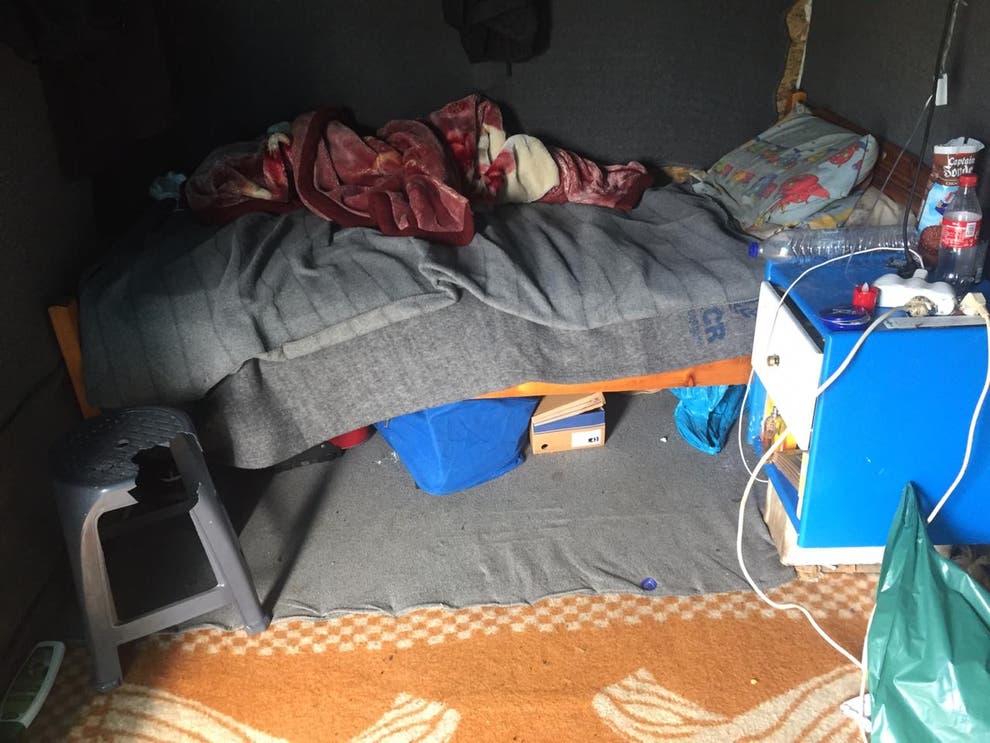Young asylum seeker at high risk of suicide after being blocked from joining brothers in UK, court hears
Exclusive: Psychiatric report warns of ‘possibility of suicide’ for vulnerable torture victim stranded in Greece if Home Office does not reverse decision to reject his family reunion application

A young asylum seeker who is stranded in a Greek refugee camp after being blocked from joining his brothers in the UK is at high risk of suicide, a medical report shows.
The Independent revealed in May that Samir, who fled to Europe after fleeing detention and torture in his home country in 2019, was living alone and in fear on the fringes of a refugee camp on the island of Samos.
The youngster, who was assessed by the Greek authorities last year as being 20 years old but maintained that he was 17 - and is appealing the decision - was refused under the Home Office’s family reunion process to join his two brothers, who are both refugees in the UK, in February 2021.
The Home Office rejected his application on the basis that he had been registered as an adult in Greece and that there was “insufficient” evidence of a close relationship. UK lawyers are currently challenging the decision.
Speaking to The Independent from his tent on the fringes of a refugee camp three months ago, Samir, whose name has been changed to protect his identity, said he felt constantly afraid, and that he was being bullied and abused by those around him, including facing sexual harassment from older men.
His lawyers say he has since disclosed that he has attempted to hang himself on two occasions, and has been unable to receive any help for his disturbed mental state.
During a judicial review hearing on Tuesday, the court was presented with evidence in the form of a medical report warning that Samir’s risk of suicide was “high” and that he would “continue to deteriorate in current circumstances”, with the “possibility of […] suicide”.
Professor David Bell, one of the UK’s leading psychiatric experts in asylum and immigration, who assessed Samir over video link and wrote the medical report, diagnosed him as being in a “complex chronic traumatised state” and suffering from a “severe depressive disorder”.
The report, seen by The Independent and dated 29 July 2021, states that it is “clear” that Samir will not recover from his disorder “as long as he remains in this environment, regardless of any treatment he can receive”.
Dr Bell adds that Samir is in the top 5 per cent of most traumatised cases of around 400 refugees he has assessed during his career.
He warns that it is “absolutely essential” that Samir is “removed from this environment from a mental point of view as soon as possible” and “transferred to the UK to be with his brothers”.
Rebecca Chapman, Samir’s barrister, argued on Tuesday that the Home Office had unlawfully refused his request for family reunion by “failing” to adequately consider the facts of his case – notably his vulnerabilities - and by denying him his right to family life.
Representing the Home Office, Simon Murray disputed the claims, arguing that the decision to refuse Samir the right to reunite with his brothers in the UK was lawfully taken.
Judge Jackson said she would make a decision on the case in the coming weeks.
The case has raised questions about the efficacy of the “safe” asylum routes offered by the Home Office, particularly in light of the Priti Patel’s plans to criminalise asylum seekers who arrive in the UK via unauthorised routes.
Samir’s UK-based solicitor, Rachel Harger of Bindmans Solicitors, said: “Samir is living out the reality of what it means to rely on so called legal ‘safe’ pathways before entering the UK: inordinate delays and relentlessly hostile litigation conduct from the Home Office.
“Not withstanding the very real risk of physical harm Samir continues to face, there is likely to be a long term impact to his mental health as a consequence of living in a chronically traumatised state whilst in perpetual fear for over a year and a half.
“This cannot be considered a ‘safe’ route for Samir.”
A Home Office spokesperson said it could not comment on ongoing legal cases, but added: “Protecting vulnerable children is an absolute priority for the government and in 2019, the UK received more asylum claims from unaccompanied children than any other European country, including Greece.
“As part of our New Plan for Immigration to fix the UK’s broken asylum system, we will continue to welcome people through safe and legal routes and prioritise those most in need.”
Join our commenting forum
Join thought-provoking conversations, follow other Independent readers and see their replies
Comments
Bookmark popover
Removed from bookmarks